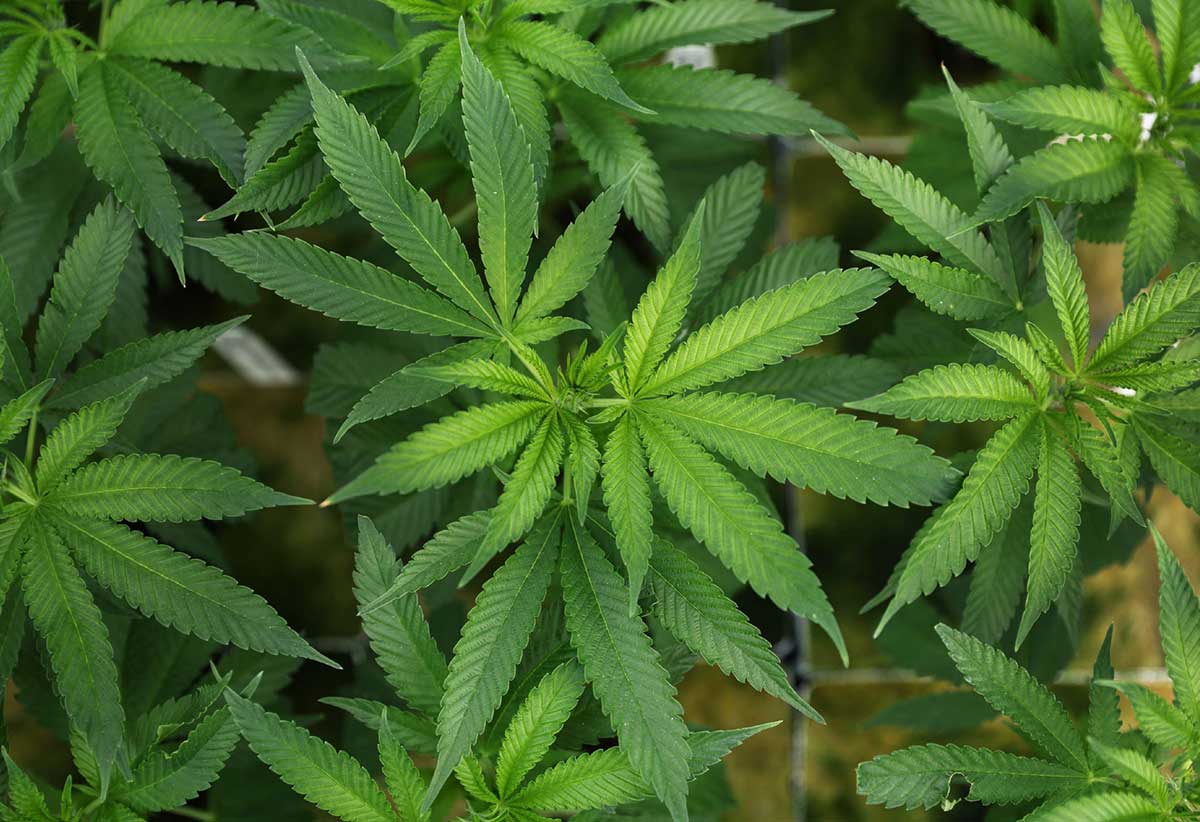
SAINT Lucia is moving ahead to enact legislation for the proposed establishment of a cannabis industry in the country.
Commerce Minister Emma Hippolyte recently presented the Regulated Substances Bill, stating that the revamped regulations would remove the “archaic and draconian” laws that formerly existed. The minister recalled that last September, she presented on the Cannabis Regime being developed for Saint Lucia.
Subsequently, she said, a presentation was made on the Regulatory Body which, would “have responsibility for Cannabis Industry.”
Hippolyte explained the purpose of this bill is to establish the Regulated Substances Authority, Regulated Substances Tribunal, Regulated Substances Fund, and to provide for the Regulated Substances and Enforcement Matters.
“I am convinced that this bill …will impact our country,” Hippolyte told legislators, in the lower house, last week.

“I am certain that the purpose is to provide Saint Lucians (with) a level of certainty where adequate mechanisms is being created to ensure that people will be safe, and that our people will have avenues to benefit from modern advances and opportunities that our society and economy will benefit from a robust regulatory structure,” she added.
Referring to the St Lucia Labour Party (SLP) Manifesto, Hippolyte stated: “We have shown an intent, not only to remove the archaic and draconian criminal provisions concerning cannabis, but to establish a legal framework allowing for the cultivation, sale and use of cannabis in Saint Lucia.”
The minister noted that the exercise was no easy feat, but rather “it has been a thought-provoking and arduous problem-solving mission, necessitating that we be cautious and meticulous.”
Initially, she said, it was felt that a “single Cannabis Bill and Cannabis Authority would provide a suitable legal and regulatory frame for this industry. However, with time, reviews, technical advice and introspection we have decided that broader changes were necessary at this pivotal time in our development.”
Subsequently, Hipployte explained, “we had to broaden our outlook, broaden our scope, and broaden our approach. Cannabis was not the only substance that required a revised regulatory framework.”
Therefore, noted the minister with responsibility for the proposed cannabis industry, it was prudent “for our development, not to regulate, grow and structure cannabis in silos. Hence, the justification for the regulatory substance authority and the bill.”
She continued, “The enactment of that legislation spells not only other pivotal achievements in the process of cannabis reform, but will address the need for the creation of a Regulatory Authority, which will bring other regimes and products into a place of regulatory conformity.”
Said Hippolyte: “The Regulatory Substances Bill creates and provides the legal parameters for the Statutory Body, which will bear that name and will be charged with the regulations and oversight of several regulatory substances, including cannabis, and cannabis products.”
Defining the wider parameters of the regulations, the minister explained that, Part I of the Bill establishes the Regulatory Authority and a Board that will oversee the affairs of the authority.
Part II of the Bill provides requirements for licenses, processes for application, parameters for approval and other similar matters.
Part III of the Bill, establishes a Tribunal that will allow aggrieved persons “to seek review and redress”.
Part IV entails a Regulatory Substances Fund to oversee a separate board, to ensure that “the funds generated by the authority and the substances which it regulates, will be used as specified in Clause 77 of the Bill.”
She further explained that this clause will facilitate funding of the Regulatory Substances Authority, and specific matters relating to Regulated Substances or other matters.
“We anticipate that the funds generated by the Regulated Substances Authority will finance its operations within the first three years of establishment, and as a result …beyond this initial startup period the authority should be self-sufficient,” said Hippolyte.
She added that the funds generated would also be utilised “to perform critical functions under Section VI, relating to Regulated Substances, and that includes, 1- Review of Policies and Guidelines, 2- Scientific Research and Development, 3- Development and Implementation in collaboration with ministries, departments, or agencies.”
The exercise will include Comprehensive Public Education and Training Programmes to raise public awareness, especially for High Risk groups.
This section will also provide for “social, emotional and mental support programmes for persons dealing with a Regulated Substance…and thirdly, focus on procedures for the safe storage and disposal of regulated substances.”
Added Hippolyte: “The objective …is to ensure that the revenue derived from the Regulated Industry will be applied to the benefit of these industries. By way of example, funds raised from cannabis should be used to benefit that aspect of the industry.”
Part V of the bill, speaks to the provision for the enforcement of this bill and duly empowers authorised persons “to ensure that provision of the bill is being adhered to.”
The minister stated that, “Part VI of the bill speaks to confidentiality, and Oath of Secrecy …and that is included in Section 90.”
She explained that Clause IV of the bill, allows the minister “by Order published in the Gazette, to declare Substance to be a Regulated Substance, thereby placing it and its regulations within the remit of the authority.”
Hipployte disclosed that the attorney generals’ chambers “is at an advanced stage in the development of legislation for two substances, which we expect the Regulated Substances Authority to regulate and assume responsibility for in the very near future.”
The minister said within the coming months, the Cannabis Bill will be presented in the lower house. She added: “The draft of the Cannabis Bill, like this Regulatory Substances Bill have received widespread stakeholder discussion and this will continue, even after the passage of this bill.”
Hippolyte listed some of the major stakeholders that have assisted in the development of the Regulatory Substances Bill: Legal Officer in the Ministry of Commerce, Mr. Inglis, and Andre “Pancho” Decaires of the Cannabis Movement. She noted that, “the two gentlemen, among others”, have worked tirelessly towards this venture.
Other stakeholders include; Invest Saint Lucia (ISL), Ministry of Health, Members of the Dental and Medical Association, Ministry of Agriculture, the National Forensic Lab, St Lucia Bureau of Standards (SLBS), Ministry of External Affairs, Ministry of Justice, the Royal St Lucia Police Force [RSLPF], Ministry of Tourism, the St Lucia Hotel and Tourism Authority (SLTA), Events Company of Saint Lucia (ECSL), Ministry of Finance, the Bankers Association, the Cannabis Task Force , Cannabis Movement of Saint Lucia, and the CARICOM Secretariat, among other groups.
“This government fully intends to continue to engage relevant stakeholders and the general public, on the development of legislation of all the substances which will be regulated by this authority,” the minister said.
“Saint Lucia’s attempt at regulation in this context is different, but different need not always be seen as negative,” noted Hippolyte. “As servants of the people, the Regulatory Substance Authority and Framework developed ….is part of an informed, robust, modern and bespoke approach to legislation.”
The minister asserted: “Our work is far from complete, but our energy, determination and passion to till what we believe is fertile soil will not fail, and will yield much fruit in due season. We remain resolute in our promise to develop, not just a robust cannabis industry, but a broader mechanism for regulating substances in our Fair Helen.”













